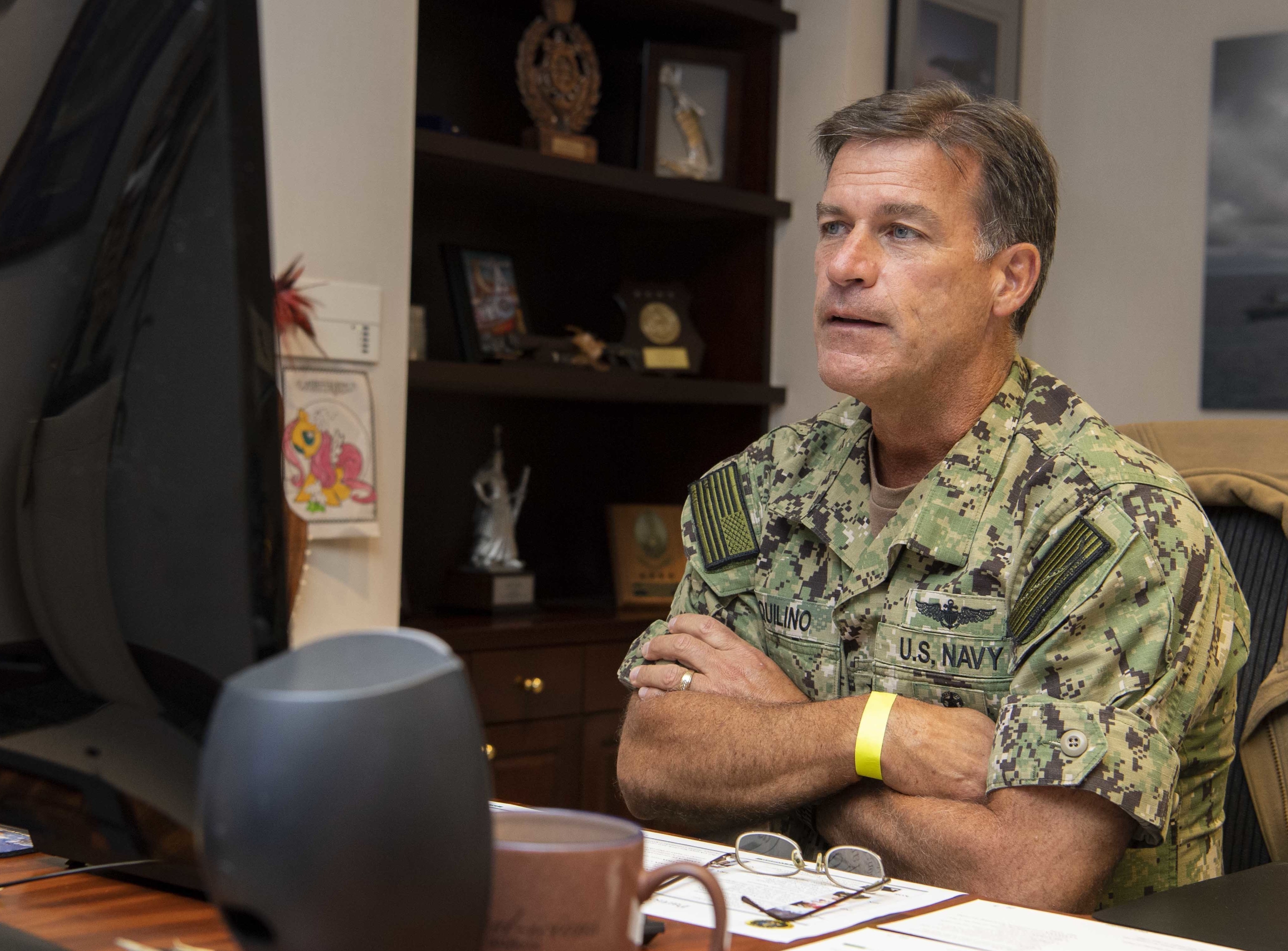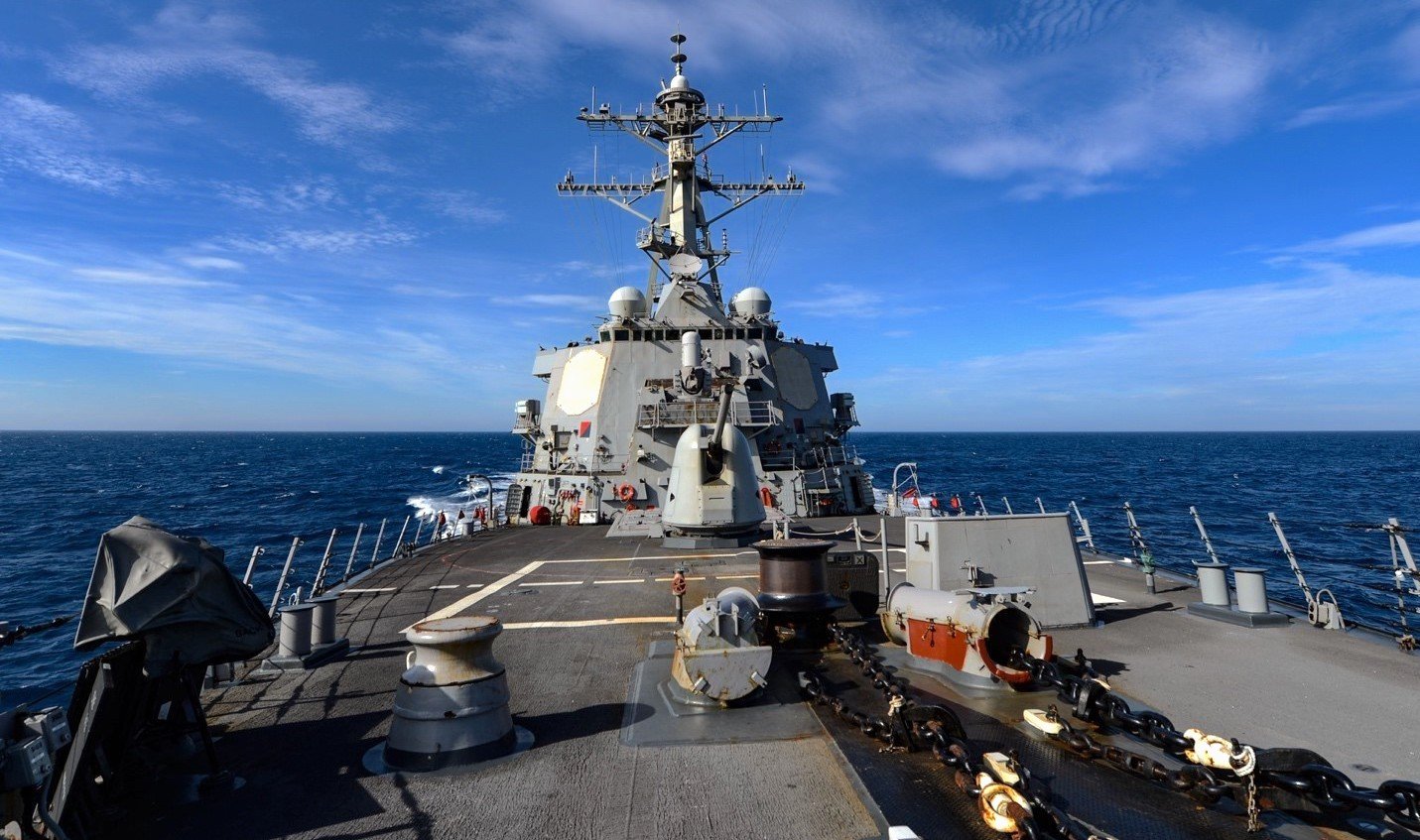
A military takeover of Taiwan is the top concern in the Indo-Pacific, according to the admiral nominated to lead the region’s combatant command.
During his confirmation hearing to lead U.S. Indo-Pacific Command, U.S. Pacific Fleet commander Adm. John Aquilino told the Senate Armed Services Committee that he concurs with former National Security Advisor H.R. McMaster’s assessment of the threat posed by China potentially seizing Taiwan.
“The most dangerous concern is that of a military force against Taiwan. To combat that, the forward posture west of the international dateline is how Adm. [Phil] Davidson describes it – and I concur with that – forces positioned to be able to respond quickly, and not just our forces,” Aquilino told the panel.
“Those forces combined with the international community, with our allies and partners – those nations with common values. Those two things would position us very strongly for the deterrence required.”
McMaster, a retired Army lieutenant general who served as one of the Trump administration’s national security advisers, told SASC earlier this month that Taiwan is “the most significant flashpoint now that could lead to a large-scale war.”
Aquilino did not put an exact timeframe on when China could execute a military takeover of Taiwan.
“There’s many numbers out there. I know Adm. Davidson said six years. You have to ask him where he made that assessment. There are spans from today to 2045,” Aquilino said. “My opinion is this problem is much closer to us than most think. And we have to take this on, put those deterrence capabilities like [Pacific Deterrence Initiative] in place, in the near term and with urgency.”
Testifying in front of the same committee earlier this month, Davidson told lawmakers he believed that China could try to seize control of Taiwan before the end of this decade.

“I think our concerns are manifest here during this decade, not only on the development – the numbers of you know, ships, aircraft, rockets, etc. that they’ve put in the field – but the way they’re advancing those capabilities as well in combination with everything that you just cited: Hong Kong . . . and Tibet, and a line of actual control in the South China Sea and the East China Sea,” Davidson told SASC.
“I worry that they’re accelerating their ambitions to supplant the United States and our leadership role in the rules-based international order, which they’ve long said that they want to do that by 2050. I’m worried about them moving that target closer,” he added. “Taiwan is clearly one of their ambitions before then. And I think the threat is manifest during this decade, in fact in the next six years.”
Aquilino, who will succeed Davidson at INDOPACOM if the upper chamber confirms him to the post, pointed to Taiwan’s investment in the Harpoon missile system as a capability that could help the island nation bolster its defenses.
“The resources they have require them to be spent in the correct manner to have the most effectiveness against the possible threat. I’m encouraged by some of those capabilities that they have purchased,” he said. “And I’m encouraged by the capabilities that they’re investing in in an indigenous fashion for their defense. The example I would give you is the Harpoon system. I thought it was very thoughtful and the right capability for one example.”
Asked about the F-35 Lighting II Joint Strike Fighter, which has recently come under fire in Congress, Aquilino said the fifth-generation capability is crucial for the region.
“Yes, senator, I would be concerned if we lessened our capacity of fifth-generation airplanes. I think they’re needed to win,” Aquilino told SASC ranking member Sen. Jim Inhofe (R-Okla.).
House Armed Services Committee Chairman Rep. Adam Smith (D-Wash.) recently criticized the F-35, citing its cost and program issues.
Aquilino argued fifth-generation aircraft are important to countering China in the Indo-Pacific.
“The Chinese Communist Party has generated some capabilities in the region that are designed to keep us out. Some refer those as [anti-access and area denial], and when we talk about them, we talk about operating in contested space,” Aquilino said. “Fifth-generation airplanes and beyond are required to be able to generate a lethal force and posture it in a place where it’s needed to generate the deterrence that I’ve mentioned.”





